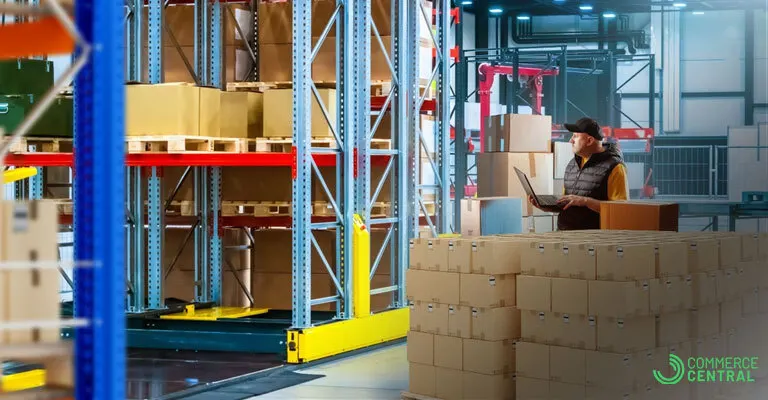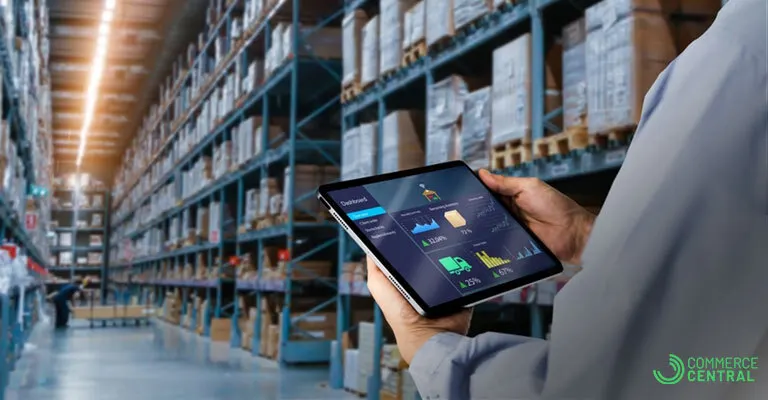

How to Score Real Liquidation Deals in Electronics (Not E-Waste)
How to Score Real Liquidation Deals in Electronics (Not E-Waste)
Electronics are exciting to buy and fun to sell. From Bluetooth speakers and tablets to kitchen gadgets and smartwatches, people love a tech deal. That’s why electronics are one of the most popular categories in closeout sales
But they’re also one of the riskiest.
When sourced right, closeout electronics can earn you strong margins. When sourced wrong, they can turn into a pile of junk — broken cords, missing parts, or outdated models nobody wants.
This guide will help you buy smarter, test better, and sell with confidence — whether you run a bin store, a discount shop, or resell online.
Why Electronics End Up in Closeout
Electronics enter the closeout world for many reasons.
Sometimes it’s overstocked items that didn’t sell fast enough. Other times, it’s a packaging update or a new model replacing an older one. Stores also clear out returns or shelf pulls when styles change or display items need to go.
One common case, A retailer pulls last year’s coffee makers to make room for a new version. The old ones still work great, but now they need to move. That’s where you come in.
But not all electronics closeouts are clean. Some are untested returns. Some are missing key parts. Some are old models that no longer sell. Before you buy, ask yourself: Is this inventory retail-ready or repair-ready?
Always Check for Newer Models
Electronics move fast. A tablet or Bluetooth speaker that was popular two years ago might now be worth half as much or less.
Before you buy, look up the current retail price of the item. Then check: has a new version been released? If yes, how different is it?
If the newer model added major features like better sound, longer battery, or newer ports, your closeout load may be hard to flip unless priced very low.
One reseller shared that they bought a load of smartwatches, only to find out a new generation had just launched. Prices on the old model dropped 40% overnight. They still made money, but not as much as expected.
Test and Inspect (When You Can)
If you’re buying electronics in person at a store closing or warehouse, always test before buying. Plug it in. Turn it on. Check for cracked screens, battery swelling, or broken ports.
If you’re buying online, read the listing carefully. Does it say “new,” “open box,” “refurbished,” or “AS-IS”?
- Overstock or shelf pulls are usually best. These are items that were never sold and are often sealed.
- Returns can be risky. Some items may work fine. Others may be missing parts or have defects.
- “AS-IS” means what it says — you get what you get, no guarantees.
One reseller bought a pallet marked “AS-IS electronics.” Of the 40 units, 12 didn’t power on, and 6 were missing remotes. They broke even, but said they’d never buy untested electronics again.
Watch Out for Missing Parts
Missing cords, chargers, batteries, and remotes are a common issue in liquidation electronics. And those little parts can add up fast.
A pallet of cameras might look like a steal until you find out none come with lenses. Or you get headphones without charging cables.
Always ask: Are accessories included? Is this unit complete?
If you’re buying online, read the manifest (if available). Look for notes like “missing power cord” or “no remote.” If you’re not sure, ask the seller directly.
Remember: a $10 savings on a toaster isn’t worth it if you have to buy a $15 plug to make it work.
Stick to Popular Items
Not all electronics sell fast. Niche gadgets or off-brand products can sit for months. Your best bet? Focus on well-known brands and useful items people search for every day.
These include:
- Bluetooth speakers
- Tablets and e-readers
- Headphones and earbuds
- Kitchen appliances
- Smart home gadgets (like plugs, bulbs, and security cameras)
One buyer got a load of DVD players — but they were all off-brand, and half didn’t work. Another bought a pallet of name-brand Bluetooth speakers (last year’s model), listed them for half retail, and sold out in a week.
Lesson: start with what people know and want. Save the odd stuff for later.
Be Careful on Amazon
Amazon is strict about electronics. They expect sellers to list items correctly, and if a buyer complains, Amazon usually sides with the customer.
One seller was suspended after selling a returned electronic item as “new.” Even though it looked sealed, the buyer claimed it had been used. Amazon didn’t accept the seller’s liquidation invoice as proof.
If you’re selling on Amazon:
- Avoid listing liquidation items as “new.”
- Use “Used – Like New” or “Refurbished” where accurate.
- Double check you’re allowed to sell that brand. Some brands block third-party sellers.
Many resellers prefer selling electronics on eBay, Facebook Marketplace, or through local channels — where listing rules are less strict.
Offer Some Kind of Support
Even if you’re selling “as-is,” offering a short return window or test period can build buyer trust — especially for refurbished electronics.
One seller offered a 7-day guarantee on laptops they personally tested. It helped buyers feel safe — and reduced complaints.
If you can’t offer returns, be clear. Mark the item as tested (or not), and describe the condition in simple terms.
Buyers don’t expect perfection, they just want honesty.
Smart Example to Learn From
A reseller in Texas bought 50 Bluetooth speakers from a liquidation supplier. They were sealed, but last year’s model. The new model had just launched but wasn’t a major upgrade.
He tested five random units, listed them as “brand new closeout — last year’s model” at $30 each (retail was $60). They sold out in two weeks. He turned a $1,000 pallet into $2,000+ in sales.
Why did it work?
- Known brand
- Tested items
- Honest description
- Clear value for the buyer
That’s the closeout hero playbook.
A Smarter Way to Source
If you’re tired of buying mystery loads, guessing what works, or dealing with missing parts, Commerce Central is here to help.
We verify sellers, list actual photos, and provide clear manifests before you buy — so you know what you’re getting.
We focus on shelf-ready, working electronics that real buyers want — no junk, no hidden surprises.
Tags:
More from the Commerce Central Blog
Unlock your inventory’s
full potential
Unlock your inventory’sfull potential
Join the only private surplus distribution platform built for trusted Buyers and Sellers.














